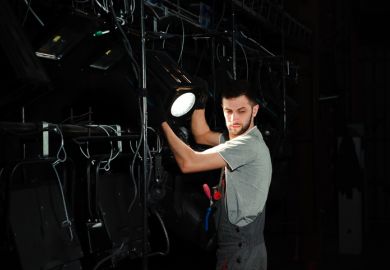A small fraction of Sir Henry Wellcome’s vast collection of objects sourced from all over the world is on permanent display in the Medicine Man exhibition on the first floor of the Wellcome Collection in London. A visitor can wander happily past glass cases containing surgical instruments, anatomical models, votive offerings and even a mummy taken from a wide range of cultures, and gain an insight into the many things, seemingly both rational and irrational to a 21st-century viewer, that humans have done in the pursuit of health and healing over the centuries. It is a cabinet of curiosities for a contemporary audience, arranged not only intelligently but, perhaps more importantly, sensitively. Indeed, the Wellcome Collection advertises itself as “the free destination for the incurably curious”, implying that the entire building serves as one giant cabinet of curiosities.
As the title of the volume under review suggests, J. C. McKeown’s new book, the third in the A Cabinet Of… series following instalments on Greece and Rome, attempts something similar. But, unlike that of the curators of the Wellcome Collection’s Medicine Man exhibition, the balance that he strikes veers uneasily between the promotion and the denigration of ancient medicine. With his tongue placed firmly in his cheek, he presents ancient medical theory and practice as simultaneously advanced and absurd. In the preface, he is keen to trace the origins of many contemporary medical achievements back to classical antiquity but simultaneously foregrounds “the odd, the bizarre, and the downright weird”, and both there and throughout the book, not enough is done to connect or at least reconcile the two.
McKeown is to be congratulated for endeavouring to utilise an incredibly wide range of sources covering all aspects of healing (as opposed to what we today would consider medicine) in classical antiquity. He does not simply stick to the famous doctors Hippocrates and Galen, but also highlights much less well-known figures. He covers both what is likely to be familiar to the reader (eg, the healing god Asclepius, healing sanctuaries and anatomical votives) and what is likely to be less so (eg, magic, astrology and dreams). He is entirely correct when he says that ancient medical literature is not readily accessible to an interested reader, and he has done that reader a great service in his thoughtful translations of vignettes from an extensive range of Greek, Latin and Arabic texts. Simultaneously, however, he does that same reader a disservice in not seeking to contextualise and explicate this fascinating material more fully. He arranges it thematically over the course of 14 methodically organised and beautifully illustrated chapters covering everything from doctors to patients, diagnosis to treatment and sex to death, but something fundamental is lost, as it were, in translation, which renders ancient medicine more opaque than it really needs to be.
As McKeown says himself, his work is meant to be “entertaining but not really enlightening”, and it is my hope that he will entertain his readers enough to encourage them to seek enlightenment on the subject of ancient medical theory and practice elsewhere. The Wellcome Collection, not to mention any other specialist medical museum, is ready and waiting.
Jane Draycott is Lord Kelvin Adam Smith research fellow in ancient science and technology, University of Glasgow.
A Cabinet of Ancient Medical Curiosities: Strange Tales and Surprising Facts from the Healing Arts of Greece and Rome
By J. C. McKeown
Oxford University Press 288pp, £12.99
ISBN 9780190610432
Published 23 February 2017
Register to continue
Why register?
- Registration is free and only takes a moment
- Once registered, you can read 3 articles a month
- Sign up for our newsletter
Subscribe
Or subscribe for unlimited access to:
- Unlimited access to news, views, insights & reviews
- Digital editions
- Digital access to THE’s university and college rankings analysis
Already registered or a current subscriber?




